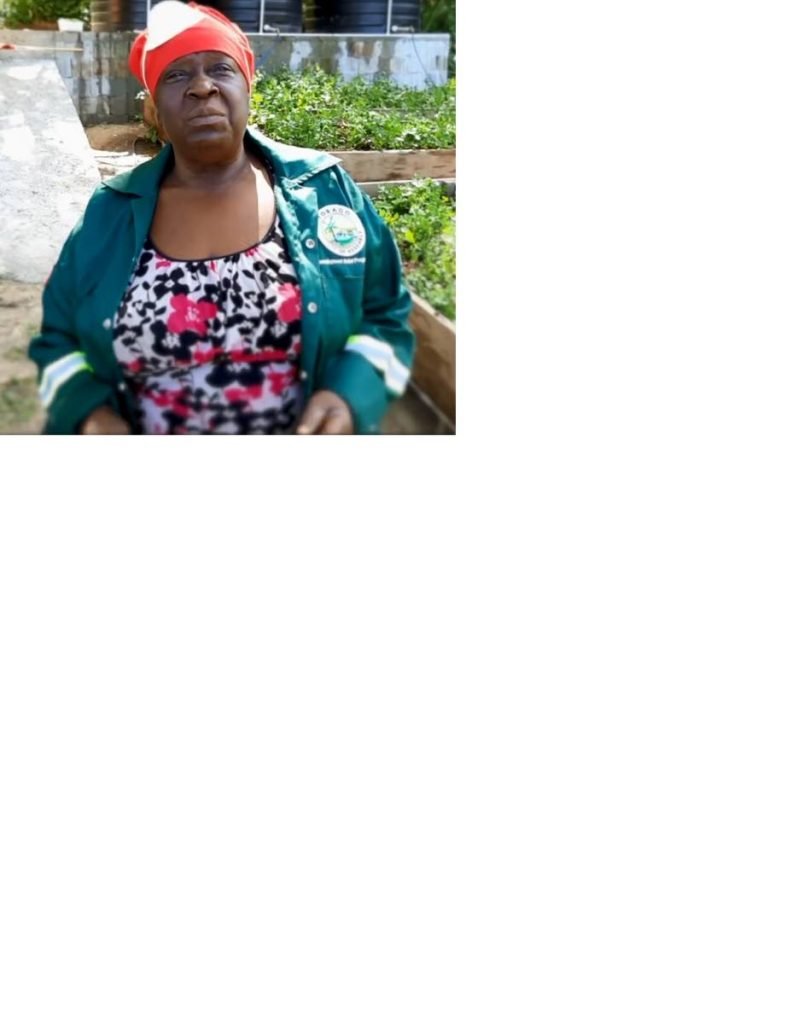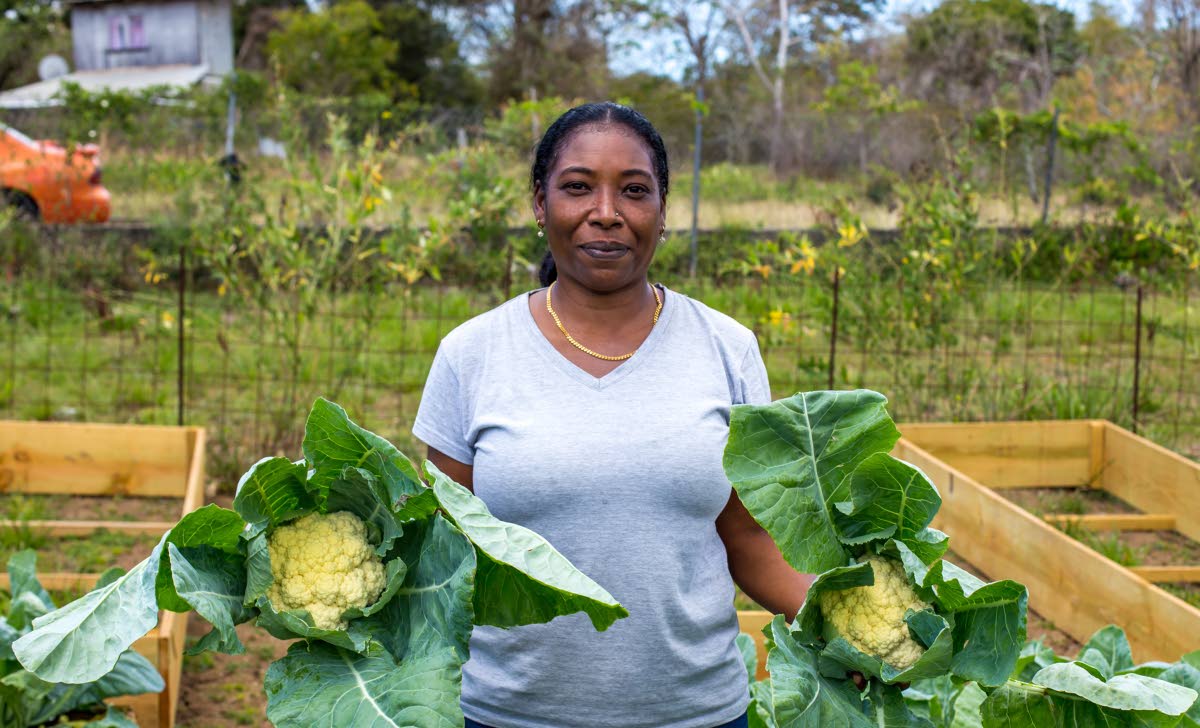URP agriculture empowers Tobago women

THE agricultural arm of the Unemployment Relief Programme (URP) in Tobago has quickly become an empowerment tool for women on the island. Senior programme co-ordinator Abigail Daniel on Friday said women continued to show great interest in the initiative and dominated their male counterparts four to one.
Speaking during a telephone interview, Daniel said the programme started on the Roxborough estate but had expanded to satellite sites in Mason Hall and Castara with plans for a new site in the west region.
Daniel lauded the Chief Secretary and Secretary of Infrastructure, Quarries and Environment (DIQE) for their unwavering support.
"The whole idea of women in agriculture was initiated from the efforts of Mr Kelvin Charles.
"We would have taken women from the women's programme in schools doing custodial work like cleaning and stuff and brought them in agriculture. They would have, in a very short space of time, learned a lot of new skills and would have repurposed them to be Useful, Relevant and Productive, which is the rebranded title of URP."
She said the new participants had brought great enthusiasm.
"It has had tremendous impact on the production level and work ethic. Those women really came here and made a difference, and the ripple effect is being seen."
Among the crops recently grown by URP are sweet potatoes, paw paw, lettuce, squash, cauliflower, sweet peppers, chive, celery, parsley, thyme, hot peppers, plantain, bananas, cassava and beet.
In a recent video on DIQE's Facebook page, Eeileen Anderson, area foreman, Mason Hall satellite site, said last year they were able to provide 100 pounds of sweet peppers for World Food Day 2019 celebrations and this year are harvesting almost 625 pounds of cauliflower.
"The initiative is providing food for Tobagonians and encouraging households to plant their own food," Anderson said.
In another DIQE Facebook post, Mary Phillip-Jackson, Castara URP satellite farm, said she always wanted to get into agriculture and was dissatisfied just being involved in beautification projects.
"We chose Castara because it's a project I always wanted to be with since I working URP. I do pine farming but I don't like the idea of only planting flowers, I rather we plant food.
"When Ms Abby came around, we tell her we wanted to try an agriculture project and we put things in place. The thing start to build up and we make 'plenty for $20' bags to see how the market accepting it and people liking it. Little restaurants would take it to make seasoning and those sort of things."
Phillip-Jackson, the manager of Ital Delights, said the project had encouraged people to be creative and get into farming.
"One of my workers built one of the trough we have here and made a bed. A next worker, he doing long-term cropping, he setting orange and grapefruit on a piece of land. Everybody on the team doing some sort of agriculture because of this project."
Asked about the commercial success of the programme, Daniel said there was a proposal made for some of the crops planted to be sold to the school-feeding programme on the island. However, she was adamant the main aim of the initiate was education.
"The ultimate authority for food production is the Division of Food Production, Forestry and Fisheries, URP, through the programme, our primary focus is to provide training. The output of that training, although we sell to wholesalers and supermarkets, that isn't our focus.
"So volume isn't like a regular farmer. In no way the URP programme is intended to compete with commercial farmers. We sell a lot of our seedlings at a very good price to farmers, we did the harvesting and gave away cassava sticks to farmers.
"We (just) want to educate and inspire. We want to empower persons; we know the stigma and perception behind URP but if URP could do it, so can you."
Daniel said covid19 had affected operations in the programme but they were using the time to restructure and become more efficient.
"Pre covid19 we've had persons involved in training in irrigation. As we produce more, our focus can't be as labour intensive. We have to ramp up the skills. I can't have them trained and have them watering plants all day...
"Prior to covid19 we would have had full complement of staff, all the necessary support. Now, we have to take into consideration (gathering restrictions) and we're working with skeleton staff. But that has opened our eyes to ways we can work more efficiently. Where we would have had an entire team committed to watering, we're now putting a greater emphasis on irrigation, so they can use the higher-level skills learned in training when they come out."
She said the current demand for locally grown food had also shone further spotlight on the programme, with people requesting seedlings, produce, manure and top soil.
"We are glad to be in a position where we have a mix of clientèle. So, we may not have the manure but we know the farmer who has it. We really try to be that link for the collaboration."
Daniel said the programme's success is evident in the participants venturing into personal backyard farming and even bigger ventures.
"The evidence of their encouragement and excitement is a lot of them are trying (it) on their own. A lot of our customers are our workers as well and have bought seedlings. We would have encouraged them to come together. One person might have the land, one might have a tractor and we've seen the formation of a lot of informal co-operatives."
The programme has collaborated with the Division of Food Production, Forestry and Fisheries, the Cocoa Development Company, Food and Agriculture Organization of the United Nations and the Tobago Agricultural Society for training and other technical guidance.


Comments
"URP agriculture empowers Tobago women"